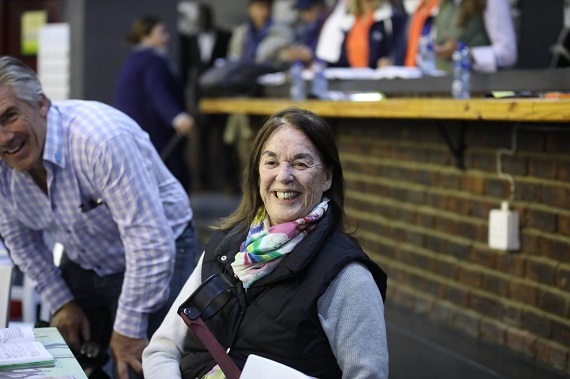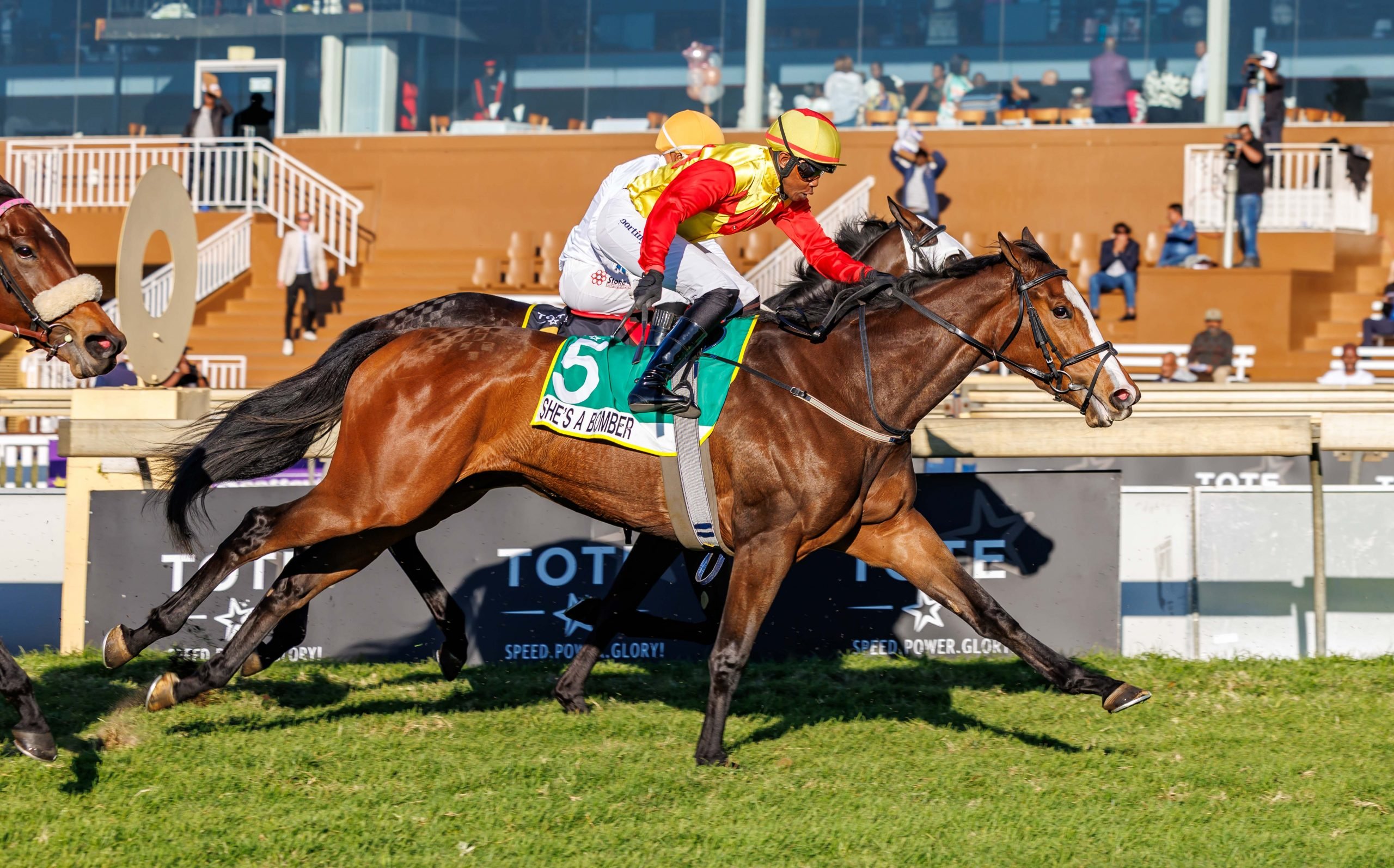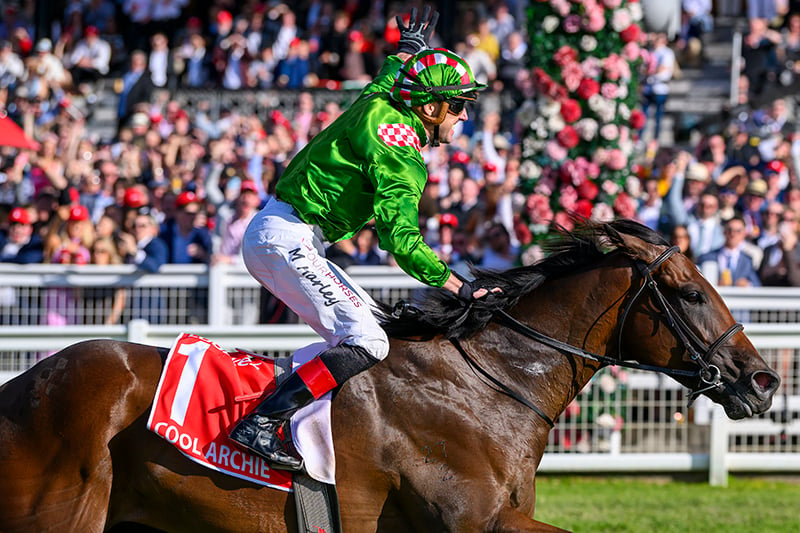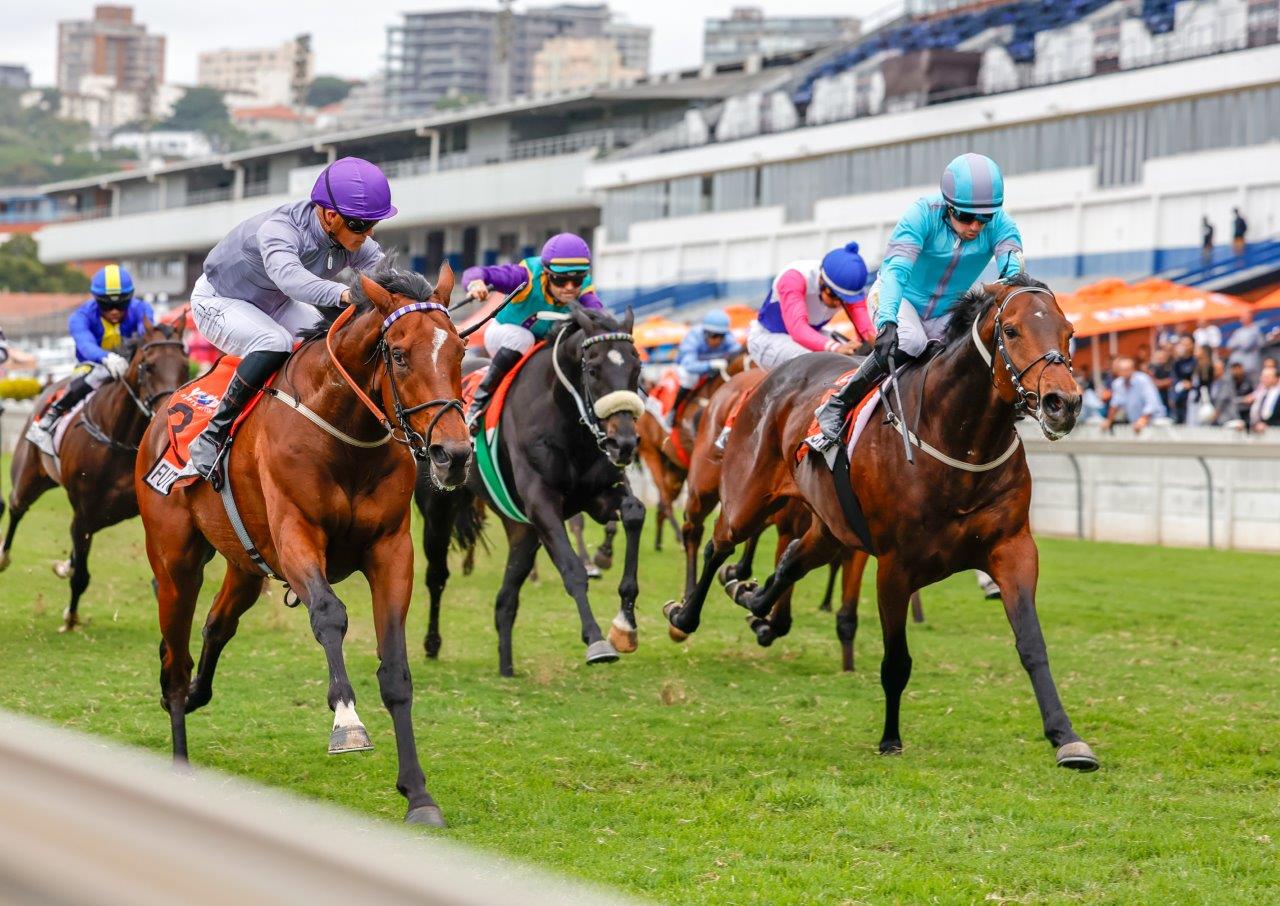The Phumelela Business Rescue process took another fascinating turn on Friday with Mary Oppenheimer Daughters placing their bid in perspective in a letter to John Evans and thus affording the affected parties an opportunity to compare the Betfred Proposal and theirs ‘in a more realistic light’.

There have been plenty of questions raised as to the lack of transparency of the process from day 1, including the omission of the Betfred bid in the original plan published on 18 August.
An amended plan was published by Evans on 26 August.
MOD believes that the clarification of their position will allow creditors the chance to make an informed decision and provide an opportunity to vote for the best offer for a successful transaction, and for racing, on 1 September 2020.
The letter states that MOD has worked tirelessly with the Racing Task Team, with industry input and feedback, to be able to deliver the MOD Transaction.
MOD has also demonstrated its commitment by funding Phumelela. MOD has, effectively, come to the aid of all creditors even though MOD is seeking only to acquire the racing assets. It has done this transparently and has timeously delivered on every request of the BRP in order to safeguard the industry.
MOD accepts that it cannot impose a position on creditors. Suffice to state that if creditors vote to adjourn the meeting at this late stage, despite MOD’s best efforts, the entity has instructed the RTT ƚhaƚ iƚ reserves the right to withdraw from the process and to provide no further funding to Phumelela.
It is hardly fair to expect MOD to fund Phumelela while it negotiates a competitive proposal to the MOD Transaction, especially not one that MOD strongly views as not being in the best interests of horse racing and all affected persons.
Comparison of the return of funds to creditors and shareholders
The Betfred Proposal indicates that creditors receiving 100c in the Rand and that the Published Plan, of which the MOD Transaction is only a single component, will only deliver 0.72c in the Rand to concurrent creditors.
It is important to note that the approximate 0.72c in the Rand is the likely minimum distribution to concurrent creditors and this is delivered by the provision of up to R550 million post a successful adoption of the Published Plan.

Upon lengthy engagement with Phumelela management and diligence of the business, MOD is of the view that allowing the BRP addiƚional ƚime ƚo sell ƚhe non-Racing assets, outside of a distressed process, the most value on the sale of non-racing assets can be delivered to employees, creditors and shareholders. In MOD’s opinion͕ ƚhe sale of assets in a posƚ-COVID environment is likely to deliver creditors 100c in ƚhe Rand͕ and ƚhereafƚer furƚher disƚribuƚions ƚo shareholders- in facƚ͕ more so ƚhan Beƚfred’s offer.
Timing of funds flow to creditors
MOD has already signed a definitive Post Commencemenƚ Finance agreemenƚ͘. Under this agreement should the Published Plan be adopted on 1 September 2020, the BRP will be able to call on R183.3 million by ƚhe end of Ocƚober. It is MOD’s view that this amount, in addition to, i) the sale of one or more of Phumelela assets, and, ii) other potential short-term cash proceeds, will secure the delivery of at least R400 million to creditors by November 2020.
Conversely, Betfred still need to negotiate and sign definitive legal agreements with the BRP.
Ability to transact and timing
The Betfred Proposal purports to be a “binding offer”; but it is not. The binding offer proposes “good faith negotiations” to enter into Definitive Legal Agreements. This is, in effect, an agreement to agree, with final terms yet to be negotiated.
In addition, the Betfred Proposal stipulates that Phumelela has until 14h00 to accept it and that the parties should use best endeavours to negotiate the Definitive Legal Agreements within five days.
In the opinion of MOD, these stipulations are naïve, optimistic and commercially unrealistic.
By way of amplification, MOD notes the following:
MOD is of the view that Betfred ought to be aware of the fact that the BRP is required by law to analyse the Betfred Proposal having regard to the interests of affected persons and/or consult with affected persons. The time periods prescribed by Betfred in its proposal are in MOD’s opinion insufficient to allow the BRP to discharge its obligations.

According to Betfred it has being engaging with the BRP since early in July. In that time Betfred appears to MOD and based on the disclosures in the Betfred Proposal to have done little more that deliver a series of non-binding proposals. The fact that Betfred has failed to get beyond a non-binding proposal of a few pages over such a protracted period is telling and it renders the suggestion that Betfred can negotiate and sign Definitive Legal Agreements within five days implausible.
By way of comparison, since Phumelela has gone into business rescue MOD has, inter alia, negotiated and signed͗ a definiƚive Posƚ Commencemenƚ Finance Faciliƚy ;͞a definiƚive PCF B͖ and a ƚerm sheeƚ with respect to the acquisition of the racing assets. MOD has achieved this while adhering to all of the suggested timeframes of the BRP. While Betfred has stated it has the funds and can offer security, there can be little better gauge of the ability to fund than the circa R60m already advanced to Phumelela by MOD.
Seniority of the Post Commencement Finance Facility
In a sign of goodwill and strong intent to provide an attractive transaction to Phumelela creditors, MOD will effectively back rank its position as creditor under the PCF B until R550m has been distributed to other creditors.
Regulatory approvals
Betfred appears to hold the view that the regulatory approvals (foreign exchange approvals, South African Competition Commission, respective provincial Gaming and Licensing Boards) required to implement the Betfred acquisition of the Phumelela will be a fait accompli. The complex licencing requirements and the resistance to foreign ownership of regulated industries is well known. In short, there is no certainty that the Betfred acquisition will be capable of quick implementation if, in fact, it is ultimately permitted.

Conversely, while the MOD Transaction will also require regulatory approval, it will be potentially less stringent, as it is not acquiring all the Phumelela assets. Regardless, the MOD PCF B funding is not contingent on any regulatory approvals being granted.
Worst case scenario
Since Betfred has not hesitated to point out the worst-case scenario attached to the Published Plan, it is worth examining the not improbable downside to the Betfred Proposal. It would appear to MOD that Betfred has conveniently “imitated” the MOD structure (i.e. a loan facility to ensure a quick payment for creditors, coupled with a separate “acquisition phase” of assets). While there is execution risk to the acquisition phase of both the Betfred Proposal and the Published Plan, the risk of this is significantly less on the Published Plan. This is because:
The acquisition phase in the Published Plan entails a number of discrete transactions with respect to different assets/asset classes. If one acquisition does not occur or falls over, it does not axiomatically follow that the others will likewise fail. In the Betfred Proposal all the proverbial eggs are in one basket.
The previously mentioned potential obstacles to foreign ownership are more easily dealt with within a structure which entails discrete purchases of particular assets/asset classes (especially where certain purchasers are South African).

To MOD’s understanding it would appear that the acquisition proposed by Betfred may be beset with difficulties from the outset. One of the assets which Betfred is earmarking for acquisition (PGI, to which Betfred attribute a value of R330 million) may well not be capable of being delivered by Phumelela.
If the acquisition phase of the Betfred Proposal fails for any reason (and this is more likely than a total failure of the acquisition phase in the Published Plan given the separate transactions for different assets), the position of Phumelela and the industry is markedly worse. Under the Published Plan a failure of the acquisition phase leaves debt of circa R550 million to MOD a trusted partner whose bona fides and commitment cannot be questioned. If the acquisition phase of the Betfred proposal fails, Phumelela is left with debt of circa R875 million to R925 million to a foreign party with no existing proven commitment to the South African industry beyond the wording of the Betfred Proposal.
Employee job security
The MOD Transaction to acquire all the Phumelela racing assets effectively sees MOD acquiring the employees that run these operations. MOD currently has no intention to reduce the employee workforce. In fact, if MOD are successful in their bid, we are looking forward to a proactive engagement with employees to create a better, long term racing product for all industry stakeholders.
South Africa racing industry interests
Betfred has, to date, written about its support of South Africa and the horse racing industry. However, Betfred has not to MOD’s knowledge made any serious effort to engage with industry representatives, nor made any tangible contribution.
To protect the industry to date. MOD has engaged extensively and has, through the RTT been very mindful of industry concerns. Beƚfred points to its international experience, but MOD is clearly better placed to understand the industry and country landscape.

MOD has been proactive in their support of the industry.
When the situation was most dire MOD stepped in to save Phumelela from liquidation, thereby saving the industry. MOD is the only party that has actually advanced money to Phumelela since the commencement of rescue proceedings. There can be no better proof of MOD’s commitment to racing.
MOD’s future plans for South African horse racing
Mary Slack and Jessica Jell have long been patrons and supportive of the South African racing industry. As has been pointed out in this document, they have been by far the most proactive and the only supporters in funding of the industry in this distressed time. Both MOD and the RTT view this potential transaction as the first step in securing the industry. With the assistance and alignment of other industry participants MOD is confident that the South African racing industry can set forth on a path to long term sustainability and for the benefit of all racing stakeholders.
Should MOD be successful in its bid, the immediate intention of MOD is to:
- Engage with key national industry participants to agree a long-term strategy and create alignment across the industry.
- Work proactively with all the racing operators to deliver a cost effective, improved racing product that can be distributed both locally and internationally for improved economic returns for all.
- Invest in transforming the racing assets it acquires, and indirectly the industry, into a more relevant and compelling product.
- Establish a company that will house the racing assets that will reinvest profits back into the industry for the benefit of all industry stakeholders in South Africa.
- Engage in real economic transformation, from grassroots, across the industry value chain to reflect South Africa’s demographic and socio-economic footprint.








